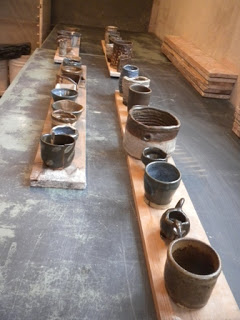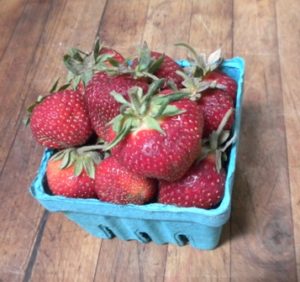 I love strawberries. They are usually the first fruit after a long winter. And I don’t mind picking a limited quantity bent over or on my hands and knees. The Germans, I am told, call them ground berries – and for good reason.
I love strawberries. They are usually the first fruit after a long winter. And I don’t mind picking a limited quantity bent over or on my hands and knees. The Germans, I am told, call them ground berries – and for good reason.
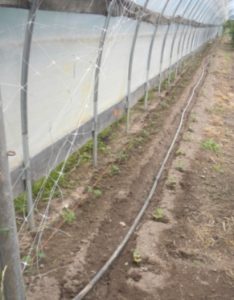
Finding strawberries grown without chemicals is challenging. They are usually one of the top crops listed on the Environmental Working Group’s Dirty Dozen crops with pesticide residue.
Strawberries are usually grown in multiple year cycles: Ken plants new tiny transplants this spring for harvest next year. As a perennial type crop strawberries have a long list of requirements: multiple hand and knees weeding on Ken’s part, covering over winter, uncovering in spring, mulching before harvest, netting before birds find them.
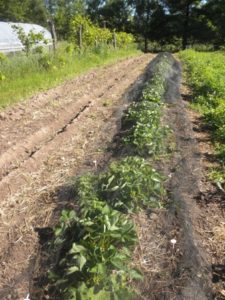 Because strawberries ripen in early spring they are often victim to weather – dry weather can mean small seedy berries; hot and or humid weather can lead to mushy berries.
Because strawberries ripen in early spring they are often victim to weather – dry weather can mean small seedy berries; hot and or humid weather can lead to mushy berries.
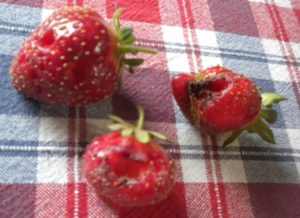
Birds, chipmunks, and slugs also like to eat strawberries. I net the plants, but if we get damp weather I can’t eliminate slug damage. Although I am happy to process and freeze culls, it can be a small crop of saleable berries.
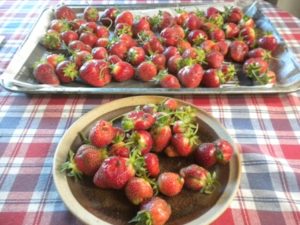
Sorting strawberries – Culls on the plate
It is difficult as farmers to put too many eggs in one basket – especially one with a large work load for such uncertain results.
We always grow strawberries and celebrate this early season treat and hope you do, too!




